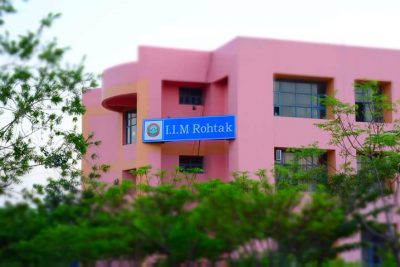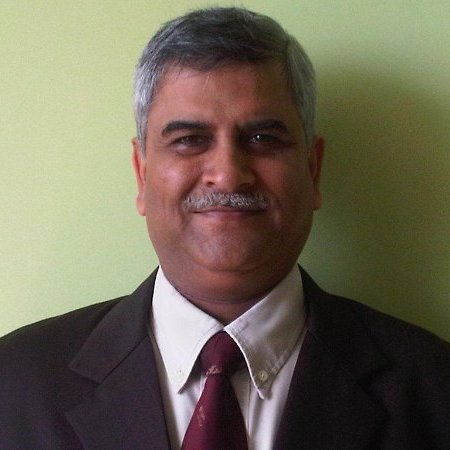


Mr Anil Chopra, Vice President, Technical Skills Development, Siemens, was at IIM Rohtak to share his insights with students at IIM Rohtak's Management Conclave, 2015. Public Relations Cell, IIM Rohtak, interacted with Mr Chopra. Here are a few excerpts from the interview:

Mr Anil Chopra, VP, Siemens
PR Team: Sir, you have an extensive experience at Siemens and that too in various roles including that of CFO, CIO, Internal Auditor and Supply Chain Manager. How important is it to be cross-functional in an organization?
Mr.Chopra: At an organization like Siemens, it is imperative to be cross-functional for ensuring consistent growth, and those who can manage the flexibility in their professional learning are poised to grow.
PR Team: Sir, you have had varied experiences in your field of work. You have earlier worked as a financial officer, then as an internal auditor. What differences do you see in these roles?
Mr. Chopra: As a controller, one is responsible for taking decisions then and there. One ends up deciding on aspects with the available factual information. And as an auditor, one looks at the processes and controls. So, these roles are very different from each other. Auditing might seem to be like performing a post-mortem. But an agile auditor doesn’t just look at what happened in the past, but he also reviews the current situation and environment. One tries to find what is best for the organization in the current environment in terms of controls. And many a times, as an auditor, you end up even changing or implementing new controls, or bringing new processes in place.
PR Team: There are plenty of advantages of having an ERP system in an organization. But one issue involved with it is that it takes a lot of hard work in its implementation. What would you say on this?
Mr. Chopra: Yes, it is a lot of work because it changes the whole landscape. When we implemented the ERP for Siemens, people struggled for 18 months to adapt. And now, they have forgotten about the troubles because ERP is reaping benefits from over a decade. So, I agree that a lot of effort goes into implementing ERP system in an organization. But once it is implemented, it delivers its results and brings in flexibility, and ultimately adds value to the business.
PR Team: Sir, but isn’t it a risky affair? A failure in ERP and reverting back entails prohibitive costs and time. So, how do you mitigate the risk?
Mr. Chopra: There are very less chances of failure in implementation of ERP. However, one has to be open and flexible in the design of the ERP to accommodate the change requests. So, if the software implementer is flexible in including the proposed changes, it shouldn’t pose major challenges.
PR Team: So, it’ll be more about people accepting the software, rather than software accepting the industry.
Mr. Chopra: That’s right! Software will do what you program it to do.
PR Team: Logistics as a sector is highly unorganized in India. How does it impact Supply Chain operations in Siemens?
Mr. Chopra: We buy about Rs. 200 Crores worth of logistics every year in Siemens in India. You rightly said that the whole sector is unorganized and it is a challenge to ensure that one gets the right product at the right price. So, I made it a point that I will move away from the unorganized sector, and will consciously choose the organized sector. We moved from giving ad-hoc orders to doing framed contracts. I asked my team to map the country and convert our prices into per Kilometer rate. We faced a challenge that there was a difference between actual number of Kilometers travelled and the number of Kilometers shown by Google Maps. We built in flexibility and allowed the vendors to charge more, based on their production of evidence that they have run more. We found that the flexibility was within 5%. Hence, we moved from the unorganized sector, to an organized sector and we now have less than half a dozen vendors, who are also consolidators. We’ve moved up the value chain. You pay higher costs in the beginning, but ultimately, end up getting a better service. And your internal cost of managing that service vendor gets optimized. So it’s an advantage in thecost benefit analysis.
PR Team: Is this innovation specific to India, or is prevalent in other Asia Pacific countries as well?
Mr. Chopra: I was responsible for the Indian subcontinent and we have managed to achieve it there. We are slowly implementing similar changes in other parts of the world. Europe and U.S. are already in a very advanced stage, and they already have high end vendors. But it is only in the Asian region, that you face this challenge. So, we are slowly moving up there and we’ll improve that as well. I’m confident.
PR Team: Sir, would you like to give any tips to the young managers planning to start their career in Operations?
Mr. Chopra: I come from a background of being a Chartered Accountant, and for me, value-based and ethical conduct of an officer is the most critical trait. In operations, you must ensure that you’re conducting yourself in a clean manner. You must define boundaries for yourself and continuously keep introspecting. If you have an eye on your conscience, you’ll be successful.
PR Team: How has your experience been at the Management Conclave at IIM Rohtak?
Mr. Chopra: I’m happy to share with you that I am satisfied with the way you have conducted the event and managed the logistics of people. This effort is commendable. Good Job!